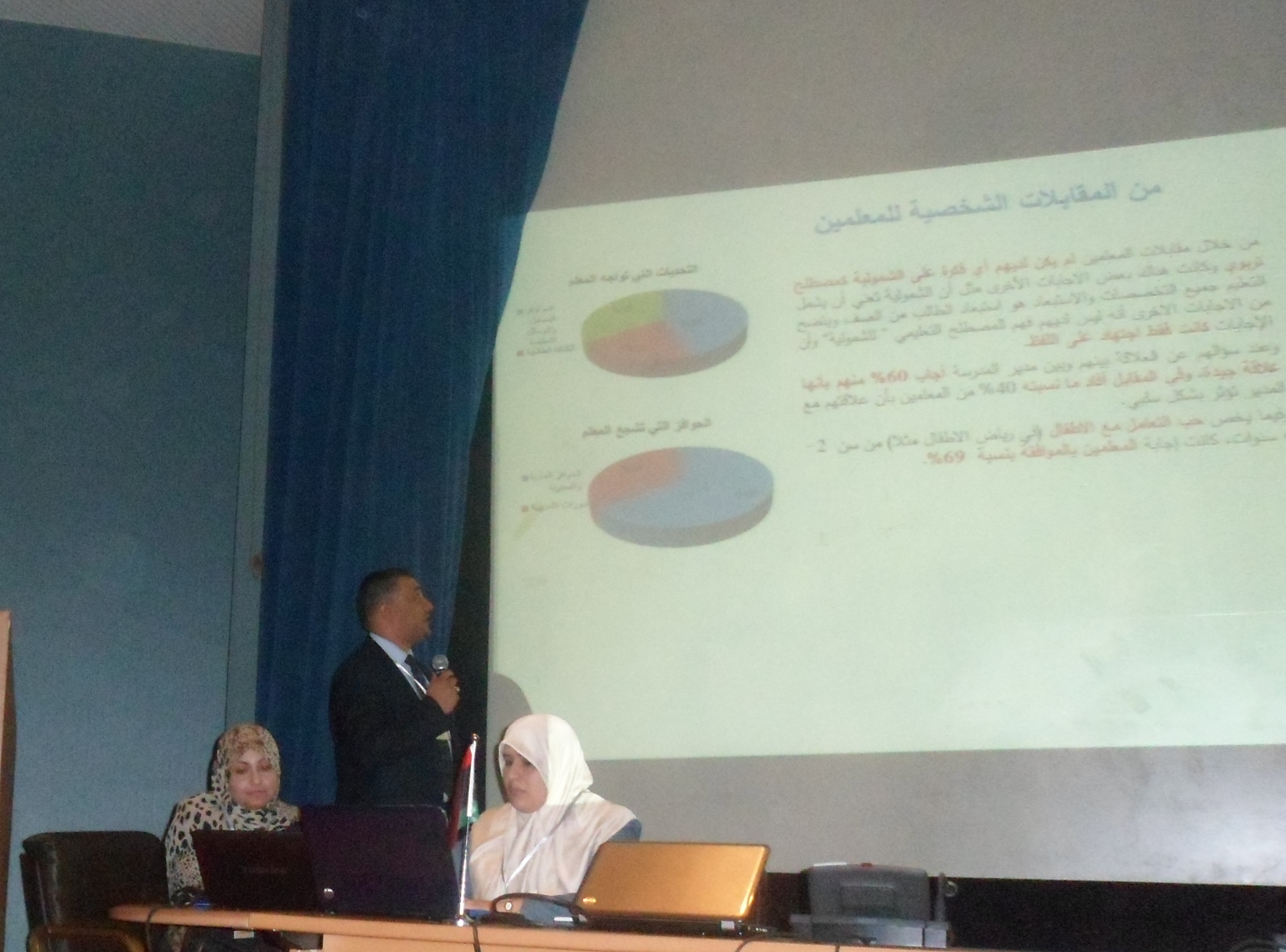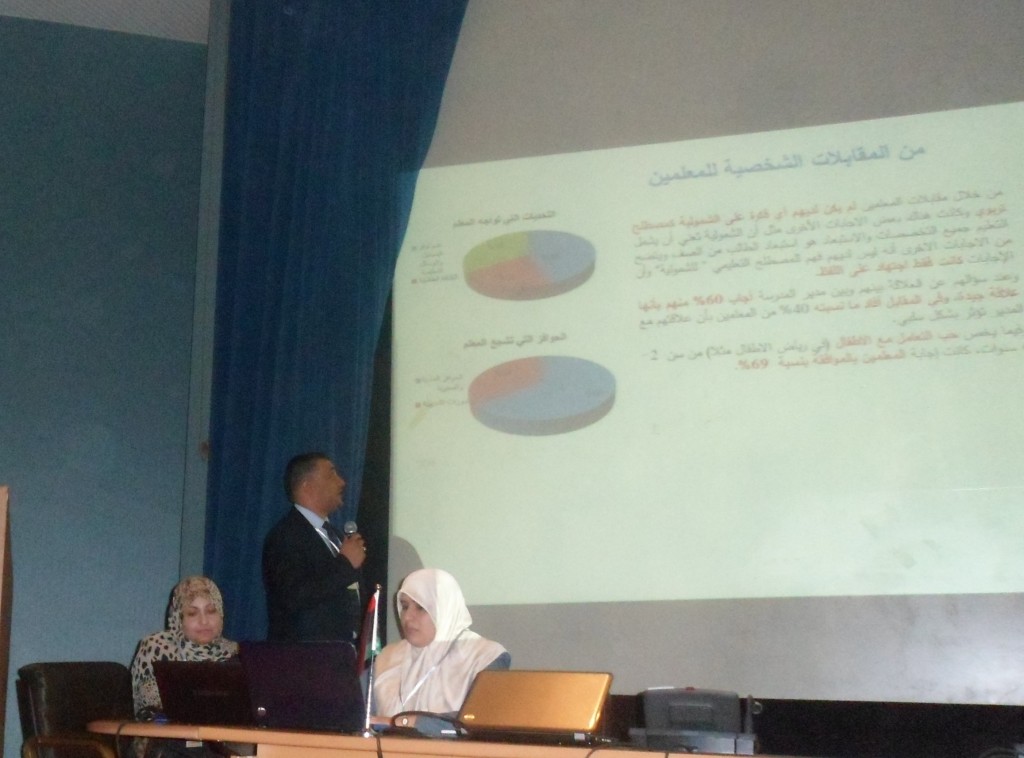By Houda Mzioudet.
Tripoli, 19 September 2013:
An international conference on “situational analysis and . . .[restrict]policy development of the Libyan teaching system” kicked off on Tuesday at the Dat El-Imad Conference Hall in Tripoli.
The three-day workshop has been organised by the General Centre for Training and Education Development of the Libyan Ministry of Education (CGTED), in partnership with British organisation CfBT Trust (Centre for British Teachers), the EU and UNICEF.
The conference brings together Libyan teachers, heads of schools, inspectors along with the Minister of Education, Ali Ebaid, Congressional Education Committee chairman Mohamed Juwili, Education Ministry officials, UNICEF Country Director Carel de Rooy and international experts in educational system reform.
Under discussion is a project analysing the current teaching practices in Libya, the aim of which is the creation of a roadmap for the reform and development of the educational system.
Presented at the conference were results of a teacher survey in Libyan schools, observations on school environment and interviews with senior officials in the Ministry of Education. The project also gave recommendations about teaching reform.
The EU-funded project consisted of a nationwide study launched by the United National Children’s Fund UNICEF in 40 elementary and secondary schools in 32 teaching zones, in the west, east and south of Libya. The study was carried out over a period of seven months in 2012.
The conference opened with a speech by the Libyan Minister of Education who stressed the pivotal role of the teacher in the teaching process. The conference was presented results about the study carried out with CfBT and UNICEF to develop teachers’ performance, school assessment and strengthen quality of education in Libya.
CfBT mapped out the challenges the Libyan educational system has been facing, most important of which is the over-supply of teachers in schools. This study gives direction to optimise direct guidelines for teachers, for a more inclusive approach in school, with “important resolutions to strengthen quality education and make learning a pleasant experience,” De Rooy stressed in his speech.
Tony McLeavy, Director of Development at CfBT, noted the excellent partnership with the Libyan Ministry of Education in spearheading this project, as well as with GCTED’s director, Um El Kheir Bouhelfaya.
“Teacher reform does not look at teacher quality in isolation, it has to be integrated,” McLeavy added, stressing the need for the “harmonisation of other skills such as curriculum development, inspection and assessment among others”.
GNC education committee chairman Mohamed Juwili highlighted the importance of starting a strategy for education during the current transition period.
David Webb and Duncan Little of CfBT, explaining the study, stressing its importance in describing the current situation of Libya and analysing education issues. Results had shown important social and regional inequalities, which impinged upon education, low self-esteem among Libyan teachers and huge gender imbalance with female teachers over-represented in the teaching sector.
Webb and Little endorsed Juwili’s statement that Libya’s “will to move forward slowly”.
UNICEF praised the Ministry of Education’s efforts to improve quality of education and make experience of class as well as minority children a “delightful and rewarding experience”, De Rooy told the Libya Herald.
“It will take time for education reform in Libya for small changes to be felt in the classroom”, he concluded.
The CfBT Education Trust, which is part-funded by the British government, does quality assurance in schools in the UK, assesses schools and offers them support. CfBT Libya manager Tim Eyres previously worked in Afghanistan developing curriculum standards in Afghani schools. He has a background in post-conflict work. In 2008, he moved to Libya advising and assisting the Libyan Ministry of Education in teaching policy development. [/restrict]











